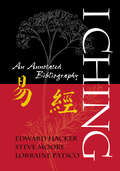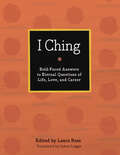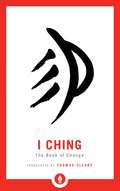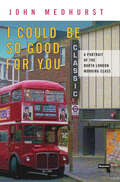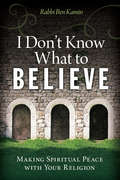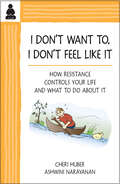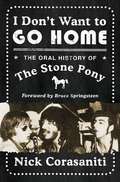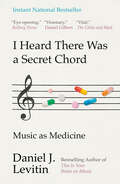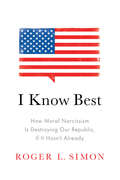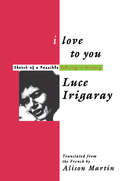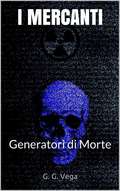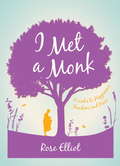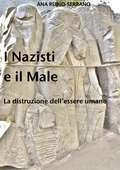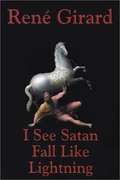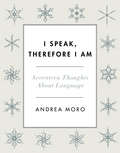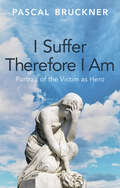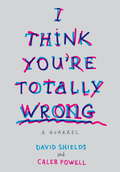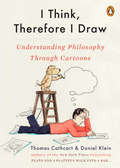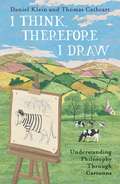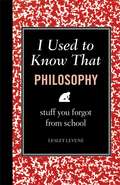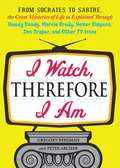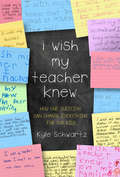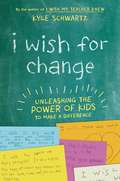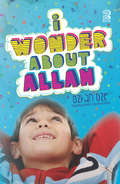- Table View
- List View
I Ching: An Annotated Bibliography
by Steve Moore Edward Hacker Lorraine PatscoWith over one thousand entries covering a diverse range of sources including books, articles, unpublished dissertations, taped lectures, devices and software, this is the most comprehensive annotated bibliography of English works on the I Ching. This book will be indispensable for all scholars of the I Ching, and an invaluable resource for those interested in this classic Chinese book. Follow this link www.zhouyi.com to editor Lorraine Patsco's massive I Ching web bibliography featuring over 2500 I Ching-related websites
I Ching: Bold-Faced Answers to Eternal Questions of Life, Love, and Career (Bold-Faced Wisdom)
by James Legge and Laura RossThis pocket-size edition of the worlds first self-help guide--venerated for more than 3,000 years as a work of philosophy, mysticism, and, by some, divinatory power--features highlighted passages and reflective writing exercises aimed squarely at contemporary readers. The underlying theme of I Ching is change. It offers wisdom on how to make informed decisions and how to adapt to the inevitable changes we face in all aspects of our lives. Now more than ever, this practical and spiritual guide is an essential tool in charting a path to personal and professional fulfillment.
I Ching: The Book of Change
by Thomas ClearyThe I Ching (Book of Change) is considered the oldest of the Chinese classics and has, throughout Chinese history, commanded unsurpassed prestige and popularity. Containing several layers of text and given numerous levels of interpretation, the I Ching has been venerated for more than three thousand years as an oracle of fortune, a guide to success, and a source of wisdom. The underlying theme of the text is change, and how this fundamental force influences all aspects of life—from business and politics to personal relationships. This translation of the I Ching draws on ancient Confucian commentary, which emphasizes applying practical wisdom in everyday affairs.
I Could Be So Good For You: A Portrait of the North London Working Class
by John MedhurstI Could Be So Good For You is a unique portrait of north London's working class from the 1950s to the 21st century, and how it lived, struggled, survived and sometimes thrived. <p><p> I Could Be So Good For You tackles head-on the pernicious and implicitly racist fiction that London, most especially north London, has no "real" working class in comparison to a more "authentic" working class in a place called "the North". In doing so it offers a history and a portrait of north London's working class from the 1950s to the 21st century, based on a wide and original range of sources including personal memoirs, autobiographies, collected oral histories and new interviews conducted by the author. The result is an important social history and a rich panorama of working-class life — its struggles, work, celebrations, events, triumphs, tragedies and the occasional nice little earner. For good or ill, from the start of post-war affluence in the 1950s to the economic crash of 2008, north London's working class had a life experience like almost no other part of the British working class, one not just of poverty, racism and exploitation, but also of bold new housing schemes in the heart of the city, of great opportunity and diversity and enjoyment. Its about time to tell that story.
I Don't Know What to Believe
by Ben KaminAmericans--especially young people--are more un-churched and less affiliated with organized religion than at any other time in our history. I Don't Know What to Believe addresses that decline and presents an insightful examination of authentic spirituality for those who desire answers, guidance, and perspective regarding an important aspect of their lives: their beliefs, and relationship to, a higher power.Rabbi Ben Kamin addresses questions he has received from real people over the thirty years of his ministry, such as: Why does my parents' religion have to define me? Am I God's child even if I don't go to religious services? Does scripture include me in its ideology regardless of how much scripture I know? How do I follow my own spirituality while still respecting my parents' traditions?Ben Kamin is the award-winning author of ten books and is a scholar on the life and work of Dr. Martin Luther King, Jr. He has led congregations in Toronto, New York, Cleveland, and San Diego since his ordination in 1978.
I Don't Want To, I Don't Feel Like It: How Resistance Controls Your Life and What to Do About It
by Cheri Huber Ashwini NarayananWhether it's a choice, such as a class we' ve signed up for, or a chore we feel we have no choice about, resistance (a voice in the head saying "I don' t want to, I don' t feel like it") can rocket us from commitment to inaction in a matter of seconds. Employing the tenets of Zen Awareness Practice, the book provides numerous exercises and tools for working through resistance. It reveals how the voice of resistance operates in everyday life, the many forms it takes, and how to be free of it. Transcending resistance is a practice of recognizing it as a process that happens to everybody and not taking it personally.
I Don't Want to Go Home: The Oral History of the Stone Pony
by Nick CorasanitiA captivating oral history of the iconic music venue the Stone Pony and of the rise, fall, and rebirth of Asbury Park, New Jersey—featuring interviews with Bruce Springsteen, Steve Van Zandt, Southside Johnny, members of the E Street Band and Asbury Jukes, the Ramones, the Jonas Brothers, Jack Antonoff, and other legendary musicians.Featuring exclusive, never-before-seen photos from Danny ClinchIn 1970, Asbury Park, New Jersey, was ripped apart by race riots that left the once-proud beach town an hour away from Manhattan smoldering, suffering and left for dead.Four years later, a few miles down the coast in Seaside Heights, two bouncers, Jack Roig and Butch Pielka, tired of the daily grind, dreamt of owning their own place. Under-prepared and minimally funded, the two bought the first bar they considered, in a city where no one wanted to be, without setting one foot in the place. They named it the Stone Pony, and turned it into a rock club that Bruce Springsteen would soon call home and a dying town would call its beating heart.But the bar had to fight to survive. Despite its success in launching and attracting rockers like Stevie Van Zandt, “Southside” Johnny Lyon, and Springsteen, the Stone Pony—like everything in Asbury Park for the past half century—could only weather the drags of a depressed city for so long.How did the Stone Pony beat the odds to survive? How did it become an international rock pilgrimage site, not just for fans of Springsteen, but for punk rockers, jam bands, pop, indie, alternative and many other musicians as well? And how did it continue to inspire and influence a hall-of-fame list of New Jersey and national rock stars? The story of the Stone Pony—thrillingly charted in this detailed oral history—is the chronicle of a proud and unique cultural mecca blooming in a down-but-not-yet-out tough town. As Nick Corasaniti reveals, the stories of Asbury Park and the Stone Pony are that of modern America itself—a place of battered hopes, big dreams, and dogged resilience.
I Heard There Was A Secret Chord: Music as Medicine
by Daniel J. LevitinNeuroscientist and New York Times bestselling author of This Is Your Brain on Music Daniel J. Levitin reveals how the deep connections between music and the human brain can be harnessed for healing.Music is perhaps one of humanity&’s oldest medicines as well as its most universal: from China to the Ottoman Empire, Europe to Africa and pre-colonial South America, cultures have developed rich traditions for using sound and rhythm to ease suffering, spur healing, and calm the mind. Despite this history, musical therapy has long been considered the remit of ancient practice and alternative medicine, if not outright quackery and pseudoscience. In the last decade, however, an overwhelming body of scientific evidence has emerged that persuasively argues music can offer profoundly effective treatment for a whole host of ailments, from Alzheimer&’s to PTSD, depression, pain, and cognitive injury. It is, in short, one of the most potent and remarkably promising new therapies available today.A work of dazzling ideas, cutting-edge research, and joyful celebration of the human mind, I Heard There Was a Secret Chord explores the critical role music has played in human evolution, illuminating how the story of the human brain is inseparable from the creative enterprise of music that has bound cultures together throughout history. Music insinuates itself into our earliest memories; it is intimately connected to our emotional regulation and cognition; its shared rhythms and sounds are essential to our social behaviors. As neuroscientist Daniel J. Levitin demonstrates in this mind-expanding follow-up to This Is Your Brain on Music—which revolutionized our understanding of the neuroscience of song—medical researchers are now finding that these same deep connections can be harnessed to create profound benefits for those both young and old.
I Heard There Was A Secret Chord: Music as Medicine
by Daniel J. LevitinNeuroscientist and New York Times bestselling author of This Is Your Brain on Music Daniel J. Levitin reveals how the deep connections between music and the human brain can be harnessed for healing.Music is perhaps one of humanity&’s oldest medicines as well as its most universal: from China to the Ottoman Empire, Europe to Africa and pre-colonial South America, cultures have developed rich traditions for using sound and rhythm to ease suffering, spur healing, and calm the mind. Despite this history, musical therapy has long been considered the remit of ancient practice and alternative medicine, if not outright quackery and pseudoscience. In the last decade, however, an overwhelming body of scientific evidence has emerged that persuasively argues music can offer profoundly effective treatment for a whole host of ailments, from Alzheimer&’s to PTSD, depression, pain, and cognitive injury. It is, in short, one of the most potent and remarkably promising new therapies available today.A work of dazzling ideas, cutting-edge research, and joyful celebration of the human mind, I Heard There Was a Secret Chord explores the critical role music has played in human evolution, illuminating how the story of the human brain is inseparable from the creative enterprise of music that has bound cultures together throughout history. Music insinuates itself into our earliest memories; it is intimately connected to our emotional regulation and cognition; its shared rhythms and sounds are essential to our social behaviors. As neuroscientist Daniel J. Levitin demonstrates in this mind-expanding follow-up to This Is Your Brain on Music—which revolutionized our understanding of the neuroscience of song—medical researchers are now finding that these same deep connections can be harnessed to create profound benefits for those both young and old.
I Know Best: How Moral Narcissism Is Destroying Our Republic, If It Hasn't Already
by Roger L. SimonIn 1979, Christopher Lasch published the epochal The Culture of Narcissism warning of the normalizing of narcissism in our society. Lasch may have understated it. 35 years later, in the Obama era-with its parade of endless, often inexplicable, scandals-we have a full blown epidemic of what has recently been called Moral Narcissism.Forget Narcissus and his reflection, Moral Narcissism-the almost schizophrenic divide between intentions and results now pervading our culture-is the new method for feeling good about yourself. It no longer matters how anything turns out as long as your intentions were good, that you were "moral." And, just as importantly, the only determinant of those intentions, the only one who defines that morality, is you.I Know Best goes beyond Lasch to lay bare how this moral narcissism is behind all those scandals from Obamacare to the Veteran's Administration to the IRS, Benghazi, Bergdahl, Syria and beyond. Everything the Obama administration did and does was about making them feel good about themselves-the results be damned.And they have as their allies those supreme moral narcissists in the academy, media and Hollywood, ever willing to ratify those good intentions and ignore those same results.But I Know Best is not just about the Left. Moral Narcissism affects the right as well, even when they don't realize it. It is a true epidemic that must be cured in order to save our democratic republic and our futures.
I Love to You: Sketch of A Possible Felicity in History
by Luce IrigarayIn this book, one of the foremost contemporary scholars in the fields of feminist thought and linguistics, explores the possibility of a new liberating language and hence a new relationship between the sexes. In I Love to You, Luce Irigaray moves from the critique of patriarchy to an exploration of the ground for a possible inter-subjectivity between the two sexes. Continuing her rejection of demands for equality, Irigaray poses the question: how can we move to a new era of sexual difference in which women and men establish lasting relations with one another without reducing the other to the status of object?
I Mercanti
by Guido Galeano Vega Flaminia MiragliaIl proposito di questo libro è rendere consapevole la società, capire e fare tesoro dell'importanza e del valore della vita. È l'umile contributo di questo scritttore emergente. L’educazione appropriata dei valori sociali umani è la priorità nel mondo. Coloro che amministrano e guidano l’economia mondiale, consciamente o inconsciamente, in maniera intenzionale o meno, sono focalizzati sull’industria della morte nel pianeta. Questo si può percepire per tutti gli eventi violenti che la nostra generazione, presumibilmente evoluta, ha sofferto. In un secolo sono stati spesi milioni e milioni in risorse, e sono state uccise milioni e milioni di persone nel pieno della loro età. Apparentemente, una parte dell’umanità ha perso l’amore per la vita, e si sta gettando tra le braccia della morte, come servo volontario per uccidere. Coloro che uccidono sono coloro che fanno in modo che la società non possa ricevere i frutti positivi della produttività globale. Sono coloro che accumulano i frutti dello sforzo e del sacrificio degli altri. Coloro che uccidono sono coloro che investono le risorse del pianeta nell’industria della morte.
I Met A Monk
by Rose ElliotPioneering vegetarian food writer Rose Elliot hones her characteristically warm and engaging narrative style to share her fascinating introduction to Buddhism. Having never truly been convinced on the idea of single, specific, spiritual practice - despite an unusual childhood growing up in a commune and as a granddaughter of a Medium - Rose discovered Buddhism much later on in her life and now she shares her positive experience and how it may benefit you, too. Part autobiography, part self-help book, I Met a Monk forms a series of workshops, structured into eight chapters that cover the weekly discussions held between a Buddhist monk, Rose, and a group of men and women, including a student, a hairdresser, a doctor and a grandmother, where they talk about the Buddhist way to finding happiness, freedom and peace. Beginning with an introduction to mindfulness meditation and the simple core tenants of the Buddhist philosophy, the book introduces the Four Noble Truths that Buddhist teaching is based on, and how they appeal to life in the 21st century and hold within them everything we need for a happy and fulfilled life. Each chapter ends with a concise summary of the important points and recommended exercises to build a working knowledge of how to put Buddhism into practice.
I Nazisti e il Male. La distruzione dell'essere umano
by Daniela Giovannetti Ana Rubio-SerranoIl nazismo spalancò le porte al terrorismo globalizzato. Ideò un male strutturale dove nessuno era in salvo neanche il popolo tedesco. Il nemico: tutti coloro che pensavano con una loro testa in maniera libera e diversa rispetto a coloro che dettavano le regole naziste. Gli ariani erano solo "individui fabbricati", ideati per la violenza, ossia automi intelligenti disumanizzati. La socializzazione del crimine attraverso la violenza diventata cultura fu uno degli obiettivi raggiunti sia nei campi di concentramento che nella società. Un libro che mette in luce questioni ancora oggi attuali più che mai.
I See Satan Fall Like Lightning
by Rene Girard James G. WilliamsRene Girard holds up the gospels as mirrors that reveal our broken humanity, and shows that they also reflect a new reality that can make us whole. Like Simone Weil, Girard looks at the Bible as a map of human behavior, and sees Jesus Christ as the turning point leading to new life. The title echoes Jesus' words: "I saw Satan falling like lightning from heaven". Girard persuades us that even as our world grows increasingly violent the power of the Christ-event is so great that the evils of scapegoating and sacrifice are being defeated even now. A new community, God's nonviolent kingdom, is being realized -- even now.
I Speak, Therefore I Am: Seventeen Thoughts About Language
by Andrea MoroThere are no men so dull and stupid, not even idiots, as to be incapable of joining together different words, and thereby constructing a declaration by which to make their thoughts understood.... On the other hand, there is no other animal, however perfect or happily circumstanced which can do the like.—DescartesLanguage is more like a snowflake than a giraffe's neck. Its specific properties are determined by laws of nature, they have not developed through the accumulation of historical accidents.—Noam ChomskyIn I Speak, Therefore I Am, the Italian linguist and neuroscientist Andrea Moro composes an album of his favorite quotations from the history of linguistics, beginning with the Book of Genesis and the power of naming and concluding with Noam Chomsky's metaphor that language is a snowflake. Moro's seventeen linguistic thoughts and his commentary on them display the humanness of language: our need to name and interpret this world and create imaginary ones, to express and understand ourselves. This book is sure to delight anyone who enjoys the ineffable paradox that is human language.
I Suffer Therefore I Am: Portrait of the Victim as Hero
by Pascal BrucknerIn the West today, suffering has become a new sacred cow. Once a common feature of the human condition, it is now a special trait you can use to impress your contemporaries. It provides you with a borrowed identity, transforming you into an exceptional being who can show off on the public stage at little cost. Everyone flaunts their certificate of affliction, positioning themselves above their peers. Even those who are well-off and powerful seek to find a place in the aristocracy of the margins, creating new castes of the dispossessed at the expense of the truly unfortunate. Infused with bitterness, this cult of the victim glorifies the martyr figure and feeds into the passions of revenge and resentment. This is the message of our age: we are all victims and entitled to feel sorry for ourselves. The submissive humanity of Christianity and the arrogant humanity of modernity have now been replaced by a victimized humanity allergic to distress. Pampered, coddled, raised in fear and sensitivity, how will younger generations be able to confront the chaotic world that awaits them, marked by war, violence, terrorism and climate chaos? Who will teach them the courage to endure, to face setbacks head-on, without faltering in the face of misfortune?
I Think You're Totally Wrong
by David Shields Caleb PowellAn impassioned, funny, probing, fiercely inconclusive, nearly-to-the-death debate about life and art--beers included.Caleb Powell always wanted to become an artist, but he overcommitted to life (he's a stay-at-home dad to three young girls), whereas his former professor David Shields always wanted to become a human being, but he overcommitted to art (he has five books coming out in the next year and a half). Shields and Powell spend four days together at a cabin in the Cascade Mountains, playing chess, shooting hoops, hiking to lakes and an abandoned mine; they rewatch My Dinner with André and The Trip, relax in a hot tub, and talk about everything they can think of in the name of exploring and debating their central question (life and/or art?): marriage, family, sports, sex, happiness, drugs, death, betrayal--and, of course, writers and writing.The relationship--the balance of power--between Shields and Powell is in constant flux, as two egos try to undermine each other, two personalities overlap and collapse. This book seeks to deconstruct the Q&A format, which has roots as deep as Plato and Socrates and as wide as Laurel and Hardy, Beckett's Didi and Gogo, and Car Talk's Magliozzi brothers. I Think You're Totally Wrong also seeks to confound, as much as possible, the divisions between "reality" and "fiction," between "life" and "art." There are no teachers or students here, no interviewers or interviewees, no masters in the universe--only a chasm of uncertainty, in a dialogue that remains dazzlingly provocative and entertaining from start to finish.James Franco's adaptation of I Think You're Totally Wrong into a film, with Shields and Powell striving mightily to play themselves and Franco in a supporting role, will be released later this year. From the Hardcover edition.
I Think, Therefore I Draw: Understanding Philosophy Through Cartoons
by Thomas Cathcart Daniel KleinA hilarious new exploration of philosophy through cartoons from the duo who brought you the New York Times bestselling Plato and a Platypus Walk Into A Bar...Thomas Cathcart and Daniel Klien have been thinking deep thoughts and writing jokes for decades, and now they are here to help us understand Philosophy through cartoons, and cartoons through Philosophy. Covering topics as diverse as religion, gender, knowledge, morality, and the meaning of life (or the lack thereof), I Think, Therefore I Draw gives a thorough introduction to all of the major debates in philosophy through history and the present. And since they explain with the help of a selection of some of the smartest cartoonists working today, you'll breeze through these weighty topics as you guffaw and slap your knee. Cathcart and Klein's Plato and a Platypus Walk into a Bar... and Heidegger and a Hippo Walk Through Those Pearly Gates have been a favorite of philosophers and non-philosophers alike for years. Packed with dozens of witty cartoons and loaded with profound philosophical insight, I Think, Therefore I Draw will delight readers and leave them enlightened.
I Think, Therefore I Draw: Understanding Philosophy Through Cartoons
by Thomas Cathcart Daniel KleinWhat makes you think you know what you think you know? What if your right is my wrong? Is it now yet? Like the best comedians, the best cartoonists address philosophy&’s Big Questions. Covering topics as diverse as religion, gender, knowledge, morality and the meaning of life (or the lack thereof), I Think, Therefore I Draw is a joyous introduction to the major debates in philosophy through history and the present. Wittgenstein once said that a serious and good philosophical work could be written that would consist entirely of jokes. Let&’s put that to the test…
I Used to Know That: Philosophy
by Lesley Levene"All are lunatics, but he who can analyze his delusions is called a philosopher." -Ambrose Bierce, EpigramsIf a tree falls and no one hears it, does it make a sound? I Used to Know That: Philosophy examines this and many other related questions. Spanning over some two-and-a-half thousand years of philosophical thought, this book covers the main highlights, from Pythagoras and Heraclitus, to Socrates, Plato, and Aristotle, to Descartes, Kierkegaard, Marx, and Sartre. From the Socratic method to structuralism, you'll get an overview of all the major theories, presented in an easy-to-understand and engaging format. This lively, fun-to-read compendium explains how philosophy began and uncovers the thinkers and movements that have used it in both brilliant and frightening ways. It includes: Short biographies of all the great philosophers, from the early Greeks to the modern greats All the main -isms and -ologies, from atomism to utilitarianism, via epistemology and ontology Quips, quotes, and conundrums to impress your friends at your next dinner partySo if you ever paused to wonder about the origin of the phrase "platonic love" or why Nietzsche came to believe that "God is dead," this is the book for you. It will refresh and enlighten you, and it may even make you stop and reflect on the larger questions of life. Because after all, as Socrates said, "the unexamined life is not worth living."
I Watch, Therefore I Am: From Socrates to Sartre, the Great Mysteries of Life as Explained Through Howdy Doody, Marcia Brady, Homer Simpson, Don Draper, and other TV Icons
by Gregory Bergman<P>Let Gilligan's Island teach you about situational ethics. Learn about epistemology from The Brady Bunch. <P>Explore Aristotle's Poetics by watching 24. <P>Television has grappled with a wide range of philosophical conundrums. According to the networks, it's the ultimate source of all knowledge in the universe! <P><P>So why not look to the small screen for answers to all of humanity's dilemmas?There's not a single issue discussed by the great thinkers of the past that hasn't been hashed out between commercials in shows like Mad Men and Leave It to Beaver. So fix yourself a snack, settle into the couch, grab the remote...and prepare to be enlightened.
I Wish My Teacher Knew: How One Question Can Change Everything for Our Kids
by Kyle SchwartzOne day, third-grade teacher Kyle Schwartz asked her students to fill-in-the-blank in this sentence: "I wish my teacher knew _____.” The results astounded her. Some answers were humorous, others were heartbreaking-all were profoundly moving and enlightening. The results opened her eyes to the need for educators to understand the unique realities their students face in order to create an open, safe and supportive place in the classroom. When Schwartz shared her experience online, #IWishMyTeacherKnew became an immediate worldwide viral phenomenon. Schwartz's book tells the story of #IWishMyTeacherKnew, including many students' emotional and insightful responses, and ultimately provides an invaluable guide for teachers, parents, and communities.
I Wish for Change: Unleashing the Power of Kids to Make a Difference
by Kyle SchwartzFrom the author of I Wish My Teacher Knew, how grownups can empower children to stand up for what they believe inThird-grade teacher Kyle Schwartz often tells her students: "You are not here so you can make money in a decade. You are here so you can make a difference now."Young people are up for the task. In the face of school shootings, cyber bullying, and other challenges students face at school, there are students who are changing the world right now.In I Wish for Change, teacher and author Kyle Schwartz equips both teachers and parents to help children stand up for what they believe is right and make value-driven decisions. She shows how children's adaptability, vulnerability, and empathy make them excellent agents for change, as well as how to teach children about the mechanics and structures of power so they can effectively change them.Filled with inspiring stories from Kyle's students and educators around the nation, as well as practical, replicable strategies for the classroom, I Wish for Change is the guide for every teacher, educator, and parent to show kids that their voice matters.
I Wonder About Allah
by Selma Ayduz Ozkan OzeHave you ever wondered about Allah? Have you ever wanted to ask why Allah created the universe and humans? Why some people are beautiful, ugly, disabled, or ill? These questions, and many more, are explored inside.Ozkan Oze was born in Turkey in 1974. While at high school, he started working at Zafer Magazine's editorial office in Istanbul and discovered his love of literature and books. Since then he has gone on to become the editor of Zafer Publications Group and continually writes. He is married with two children.
